The first lamps arriving in Peru - photo Chiara Andrich & Giovanni Pellegrini
">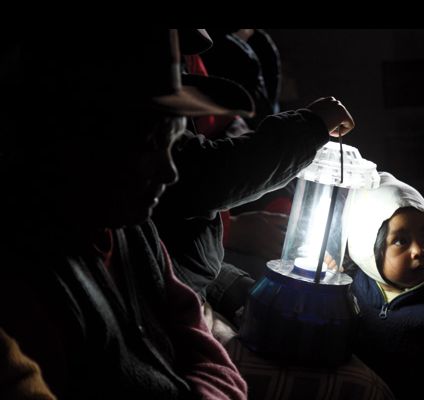
The first lamps arriving in Peru - photo Chiara Andrich & Giovanni Pellegrini "> Solar panels in Peru - photo Chiara Andrich & Giovanni Pellegrini
">
Solar panels in Peru - photo Chiara Andrich & Giovanni Pellegrini
"> Llamas in Peru - photo Chiara Andrich & Giovanni Pellegrini
">
Llamas in Peru - photo Chiara Andrich & Giovanni Pellegrini
"> Peru - photo Chiara Andrich & Giovanni Pellegrini
">
Peru - photo Chiara Andrich & Giovanni Pellegrini
">
Solar panels installed on house in Peru - photo Chiara Andrich & Giovanni Pellegrini "> Ladies training to become engineers at Barefoot college, India - photo Chiara Andrich & Giovanni Pellegrini
">
Ladies training to become engineers at Barefoot college, India - photo Chiara Andrich & Giovanni Pellegrini
">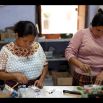 Lady training at Barefoot college, India - photo Chiara Andrich & Giovanni Pellegrini
">
Lady training at Barefoot college, India - photo Chiara Andrich & Giovanni Pellegrini
"> Ladies training at Barefoot college, India - photo Chiara Andrich & Giovanni Pellegrini
">
Ladies training at Barefoot college, India - photo Chiara Andrich & Giovanni Pellegrini
">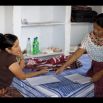
Training at Barefoot college, India - photo Chiara Andrich & Giovanni Pellegrini "> Training at Barefoot college, India - photo Chiara Andrich & Giovanni Pellegrini
">
Training at Barefoot college, India - photo Chiara Andrich & Giovanni Pellegrini
">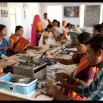 Training at Barefoot college, India - photo Chiara Andrich & Giovanni Pellegrini
">
Training at Barefoot college, India - photo Chiara Andrich & Giovanni Pellegrini
">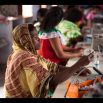 Training at Barefoot college, India - photo Chiara Andrich & Giovanni Pellegrini
">
Training at Barefoot college, India - photo Chiara Andrich & Giovanni Pellegrini
">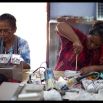
Training at Barefoot college, India - photo Chiara Andrich & Giovanni Pellegrini "> Training at Barefoot college, India - photo Chiara Andrich & Giovanni Pellegrini
">
Training at Barefoot college, India - photo Chiara Andrich & Giovanni Pellegrini
"> photo Chiara Andrich & Giovanni Pellegrini
">
photo Chiara Andrich & Giovanni Pellegrini
"> Barefoot college - photo Chiara Andrich & Giovanni Pellegrini
">
Barefoot college - photo Chiara Andrich & Giovanni Pellegrini
">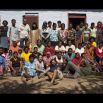

The first lamps arriving in Peru - photo Chiara Andrich & Giovanni Pellegrini ">
 Solar panels in Peru - photo Chiara Andrich & Giovanni Pellegrini
">
Solar panels in Peru - photo Chiara Andrich & Giovanni Pellegrini
"> Llamas in Peru - photo Chiara Andrich & Giovanni Pellegrini
">
Llamas in Peru - photo Chiara Andrich & Giovanni Pellegrini
"> Peru - photo Chiara Andrich & Giovanni Pellegrini
">
Peru - photo Chiara Andrich & Giovanni Pellegrini
">
Solar panels installed on house in Peru - photo Chiara Andrich & Giovanni Pellegrini ">
 Ladies training to become engineers at Barefoot college, India - photo Chiara Andrich & Giovanni Pellegrini
">
Ladies training to become engineers at Barefoot college, India - photo Chiara Andrich & Giovanni Pellegrini
"> Lady training at Barefoot college, India - photo Chiara Andrich & Giovanni Pellegrini
">
Lady training at Barefoot college, India - photo Chiara Andrich & Giovanni Pellegrini
"> Ladies training at Barefoot college, India - photo Chiara Andrich & Giovanni Pellegrini
">
Ladies training at Barefoot college, India - photo Chiara Andrich & Giovanni Pellegrini
">
Training at Barefoot college, India - photo Chiara Andrich & Giovanni Pellegrini ">
 Training at Barefoot college, India - photo Chiara Andrich & Giovanni Pellegrini
">
Training at Barefoot college, India - photo Chiara Andrich & Giovanni Pellegrini
"> Training at Barefoot college, India - photo Chiara Andrich & Giovanni Pellegrini
">
Training at Barefoot college, India - photo Chiara Andrich & Giovanni Pellegrini
"> Training at Barefoot college, India - photo Chiara Andrich & Giovanni Pellegrini
">
Training at Barefoot college, India - photo Chiara Andrich & Giovanni Pellegrini
">
Training at Barefoot college, India - photo Chiara Andrich & Giovanni Pellegrini ">
 Training at Barefoot college, India - photo Chiara Andrich & Giovanni Pellegrini
">
Training at Barefoot college, India - photo Chiara Andrich & Giovanni Pellegrini
"> photo Chiara Andrich & Giovanni Pellegrini
">
photo Chiara Andrich & Giovanni Pellegrini
"> Barefoot college - photo Chiara Andrich & Giovanni Pellegrini
">
Barefoot college - photo Chiara Andrich & Giovanni Pellegrini
">





















